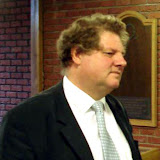Matthew, like Luke, affirms that the Jesus was born in
The magi were probably astrologers. As such it is unusual to find them being treated favourably in the text. Balaam serves as an Old Testament example. He was a foreigner from the east whose prophecies included a star and a sceptre. Balaam is treated as a bit of a comic turn in the Book of Numbers, being shown as the wise man who was less wise than his ass. These magi are misled to Herod’s palace, but there is no attempt by the writer to portray them as anything other than serious scholars, obedient and humble before their learning, sensitive to the traditions of the Jewish people, for protocol would have dictated that a king was to be searched for first in Jerusalem: perhaps they would have felt honour bound to start their inquiries with the king. Indeed the humble, honest and diligent searching of these Gentiles is compared most favourably with the lazy, casual and devious methods of Herod, whose negative attitude sets the tone of hostility among the Jewish ruling class which is to mark out the rest of the gospel.
Herod reigned from 37- 4 BCE. He was not king by birthright - he was not even completely Jewish: he owed his position to his courting of the Romans. His servile attitude to Augustus was accompanied with paranoia towards his own people. Married ten times, he systematically eliminated not only political opponents but any who might have seemed to have a rival claim to the throne. he was determined to build for himself an eternal name by initiating architectural works: baths, aqueducts, stadia, theatres, palaces and fortresses. His greatest and most costly project was to rebuild the temple. This was not finally completed until 63 CE, and then survived only 7 years before it was totally destroyed by the Romans.
Herod’s motive in rebuilding the temple was probably three-fold: a desire to copy the temples of
So when the magi asked "Where is he who has been born King of the Jews? For we saw his star in the east and have come to worship Him," it was the sort of question Herod had been dreading all his life. And Matthew’s portrayal of the anxiety that this question brought both to him personally and to the political establishment rings true with what we know about him from other sources. The words ‘born’ and ‘Jews’ would have been particularly threatening to a king who had been placed in office by a Roman emperor and relied on his relationship with the Romans for his office.
For centuries from Socrates to Voltaire the whole world believed in the Great Chain of Being. Events on earth were accompanied by events in the heavens. Matthew’s gospel is written within such a framework. The interpretation of scripture quoted by the scribes is affirmed by the heavenly sign. The star which signified the birth of a king reappears over
So the magi found their way to
Matthew seems to suggest that Mary and Joseph lived in
The treasures that they opened were the treasures of worship. Frankincense and myrrh were both essential ingredients of incense. Pure frankincense was kept in two vials before the sacred bread in the tabernacle and the temple. Myrrh was used as an essential ingredient in the ointment of purification used by priests before they could perform sacrifices. Gold also played a significant role in the furnishing of the temple. Frankincense and myrrh came almost exclusively from the South of Arabia. The Gold of Sheba is referred to in Psalm 72. So in the visit of the magi to the infant Jesus we see echoes of the visit of the Queen of Sheba to Solomon. It had probably been the building of the temple and the consequent requirements of gold, myrrh and frankincense that her kingdom produced that made it important for Solomon to make an alliance with her to secure supplies. These magi now come to pay homage to great David’s greater son, bearing the same signs of worship. By presenting them to Jesus rather than to Herod, who was building a temple to surpass even that of Solomon, they prepare us to see in him the one whose temple will outlast that of stone.
Once the magi have worshipped at the feet of Jesus, they receive direct guidance from God himself. Up till now they had been guided by a star and by scribes. That guidance had been equivocal and not always clear. Now they received guidance in a dream that was decisive. Their encounter also opened up for them new routes in life. After encounters with Christ we do not leave by the same door through which we entered.
The literature of the ancient world is packed with stories of gods and heroes, mythical and historical, whose life was threatened soon after birth and had to flee to distant lands or be hidden in caves. There was, of course, above all, a parallel in the story of the baby Moses. The plan of Herod to kill all the male children under the age of two is also reminiscent of that story in Exodus. The urgent flight by night of Joseph, Mary and Jesus to
